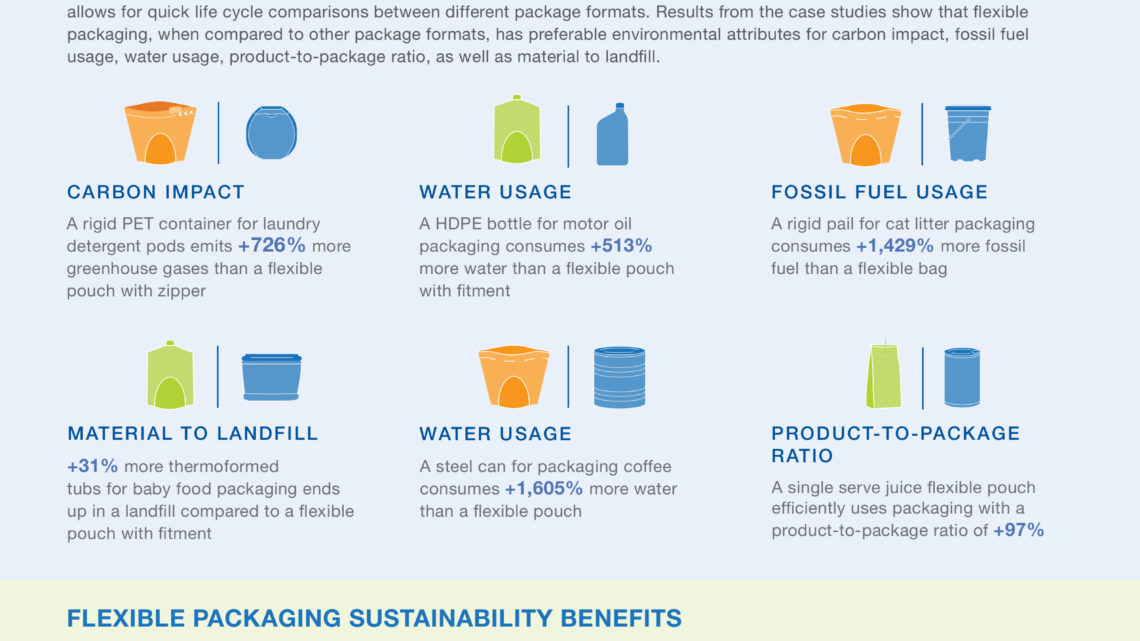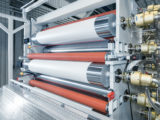
A Holistic View of the Role of Flexible Packaging in a Sustainable World
March 26, 2019The FPA recently published a new report on sustainable packaging, A Holistic View of the Role of Flexible Packaging in a Sustainable World. FPA commissioned PTIS, LLC to provide a holistic view on the sustainability benefits that flexible packaging offers; provide foresight into future sustainability implications for flexible packaging; and develop six LCA case studies comparing flexible packaging to other packaging formats across a range of products.
The report focuses on the segment of the industry that adds significant value to flexible materials, usually by performing multiple processes such as printing, laminating multiple layers, and adding coatings, all of which aid in performance of the material, improve the consumer/user experience, and/or extend the shelf life of the product. It focuses on the U.S. perspective, though global data and context are utilized to provide a broader picture and looks at the current state for flexible packaging, while also providing foresight into potential future implications. To download a copy of the report, click here.
FPA developed a fact sheet to help summarize the key findings of the report. To download a copy of the fact sheet, click here.


Promoting the Sustainability Benefits and Value of Flexible Packaging
The flexible packaging industry produces innovative, sustainable packaging that offers significant value to product manufacturers, retailers, and consumers. As a leading voice in the sustainable packaging movement, the Flexible Packaging Association has committed significant resources to support flexible packaging sustainability. Through its ongoing research and initiatives, FPA provides a greater understanding of the environmental advantages and benefits of flexible packaging among consumer product companies, retailers and consumers.
Flexible Packaging Manufacturing, Distribution, and Use
- Consumes less energy and fewer natural resources
- Generates less CO2 emissions
- Results in higher product to package ratio
- Requires fewer trucks for transportation, using less fuel and creating less emissions
- Provides many consumer conveniences:
- Extended shelf life
- Easy storage
- Microwaveability
- Recloseability
